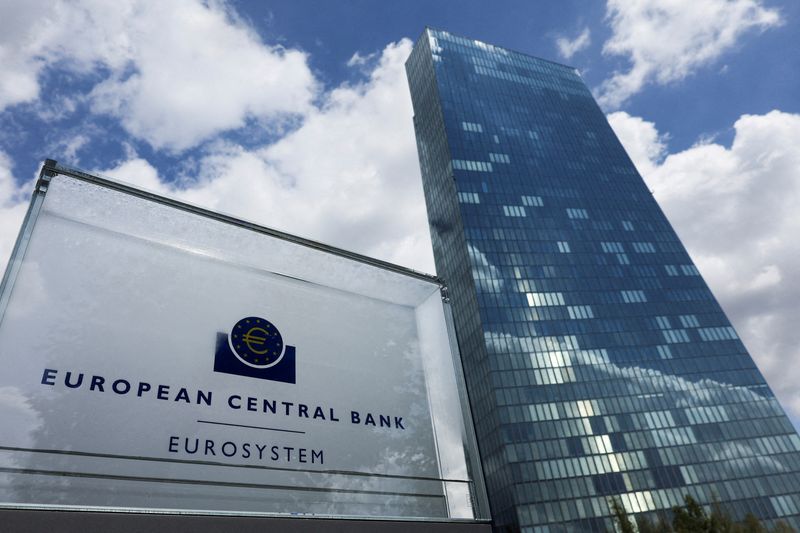By Geoffrey Smith
Investing.com -- Inflation in the Eurozone fell surprisingly sharply in December as the collapse in wholesale energy prices in recent months, combined with government measures to cap utility bills, started to make itself felt.
The news will ease some of the pressure on the European Central Bank to tighten monetary policy aggressively in an environment where growth is also slowing sharply, but the figures still showed 'core' inflation running at an uncomfortably high level for the central bank.
According to preliminary data from Eurostat, the Eurozone consumer price index fell 0.3%, its second straight decline, and a much weaker outturn than the 0.8% rise expected ahead of time by economists. The data were heavily influenced by energy bill rebates for households in Germany, the region's largest economy. The energy component of Eurostat's price basket fell 6.5% on the month, also assisted by falling prices for gasoline and diesel.
That brought the headline rate of inflation down to 9.2% from 10.1% in November. The CPI peaked at a euro-era high of 10.6% in October.
However, the core inflation measure, which strips out volatile food and energy components, showed no sign of easing up, rising 0.6% in December, driving the annual core inflation rate to a new high of 5.2%.
The ECB targets 2% inflation over the medium term, and ECB President Christine Lagarde had warned at her last press conference in December that further interest rate hikes will be needed to bring it into line with that target, despite widespread expectations of a recession across the region this year.
In addition to raising interest rates further, many ECB policymakers are pushing for the central bank to start unwinding trillions of euros worth of bond purchases made over the last six years.
"The ECB should raise its interest rates strongly in February" at its next meeting, Commerzbank chief economist Joerg Kraemer said via social media, warning people "not to get too happy" about the decline in the headline rate and drawing attention to the more worrying underlying trend.
"With core inflation at record levels and likely remaining high over the coming months, we expect the ECB to deliver two 50bps hikes in February and March and pause afterwards amid easing inflation and subdued economic trends," Oxford Economics' Riccardo Marcelli Fabiani wrote in a note to clients.
The ECB raised its key deposit rate, which forms a floor for euro money market rates, by 2.5% last year as inflation took off, ending an eight-year experiment with negative interest rates and increasing volumes of quantitative stimulus.
